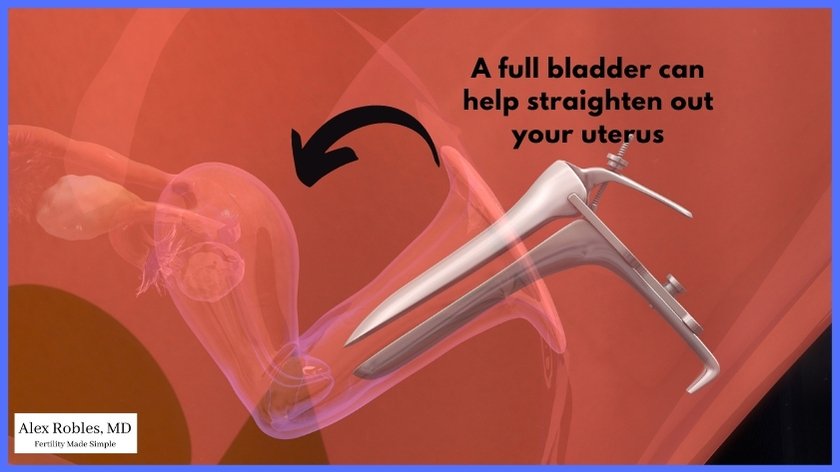Several medications are necessary to stimulate your ovaries to produce a high number of eggs for an in vitro fertilization cycle.
However, these IVF medications can cause some side effects.
In this post, you’re going to learn about the common side effects of each type of medication, as well as some rarer symptoms that you shouldn’t ignore.

What are the side effects of IVF medications?
The most commonly used medications for IVF are:
Subcutaneous Injectibles:
- Gonadotropin injections of FSH and LH (Gonal-F, Follistim, Menopur),
- GnRH agonist injections (Leuprolide aka Lupron)
- GnRH antagonists injections (Ganirelix, Cetrotide)
- hCG trigger injections (Pregnyl, Novarel, Ovidrel)
Oral Medications
- Clomiphene citrate, Letrozole
Intramuscular Injections:
- Progesterone intramuscular injections
Each of these three types of medications can cause different side effects.
Common side effects of the injectable medications include:
- pain at the injection site
- skin reaction at the injection site (bruising, redness, swelling)
- menstrual-like cramps and abdominal bloating
- headache
- breast tenderness
- nausea
- mood swings
- ovarian hyperstimulation syndrome
Common side effects of the oral medications include:
- headache
- hot flashes
- abdominal pain and bloating
- nausea
- breast tenderness
- visual disturbances with clomiphene citrate*
Of all of these side effects, visual disturbances with clomiphene is the most concerning. If you are experiencing this symptom, be sure to get in touch with your doctor immediately.
Common side effects of the injectable progesterone medication
- Allergic reactions to one or more ingredients in the progesterone formulation
The intramuscular injection of progesterone is in oil form. It is frequently produced with sesame oil, which some people are sensitive to.
If you develop significant adverse reactions, please ask your doctor about an alternative progesterone formulation made with olive oil.
What are the possible side effects at each step of in vitro fertilization cycle?
Now let’s walk through a typical IVF cycle and what you can expect at each step.
Ovarian Stimulation Side Effects:
During this 8-12 day period, you will be taking 2-3 subcutaneous injections per day and possibly an oral medication.
The most common adverse effect you will experience will be related to the discomfort at the injection sites. Many patients will also experience hormonal side effects such as hot flashes, cramping, bloating, and breast pain.
Trigger Side Effects:
Once you have developed a sufficient number of mature follicles, you will take your trigger shot, which helps your eggs to mature before retrieval.
The trigger injection will also cause local side effects at the injection site. Still, it can cause some hormonal side effects as well.
Egg Retrieval Side Effects:
During the egg retrieval, you will be given anesthesia to keep you comfortable. Other than the typical side effects associated with any surgical procedure (such as nausea, vomiting, abdominal pain, and pelvic pain), there are no medication-related side effects during this time.
A transvaginal ultrasound will help guide a small needle into each of your ovarian follicles to drain the fluid and retrieve the eggs. As a result, there is a small risk of bleeding and infection.
Post-Retrieval Side Effects:
During this 10-14 day period, you will experience bloating and some abdominal/pelvic discomfort. We will also closely monitor you for signs of ovarian hyperstimulation syndrome (OHSS) over the next few days. These include nausea, vomiting, weight gain due to fluid retention, and shortness of breath.
In rare cases, the symptoms of ovarian hyperstimulation syndrome can be very severe and require hospitalization. Thankfully, the severe form of OHSS occurs in less than 1% of cases.
Embryo Transfer:
During the embryo transfer, you may experience some mild cramping as the catheter enters the uterus. Otherwise, you shouldn’t have any other significant side effects.

You will typically continue progesterone supplementation in some form for several weeks after the transfer.
How bad is IVF for your body?
The medications themselves are usually well-tolerated and generally do not have any significant short-term effects.
It is important to remember that IVF medications result in high levels of hormones for only a few days throughout a cycle.
With that said, it is possible to develop more worrisome adverse effects such as ovarian hyperstimulation syndrome, ovarian torsion, ectopic pregnancy, or multiple pregnancies.
Are there long-term side effects of IVF injections?
To our knowledge, there are no significant long-term effects of the injection medications.
Studies have looked at fertility medications and their relationship with ovarian cancer, breast cancer, endometrial cancer, and other non-gynecological cancers.
However, the data is limited as there are several confounding factors:
- Many of the cancers described in the studies are relatively uncommon,
- Many of these cancers do not develop until later in life, and
- Women with infertility already have independent risk factors for cancer
As such, these confounding factors make it difficult to establish any causal relationship between IVF medications and cancer.
How do IVF medications make you feel?
Some patients feel absolutely fine while taking IVF medications. In contrast, others can experience any number of symptoms such as headaches, abdominal bloating, hot flashes, nausea, etc.
It is essential to understand that not everyone will experience any given symptom.
I recommend staying well hydrated, eating a well-balanced diet, and minimizing your alcohol and caffeine intake when taking any fertility medication.
Is IVF treatment painful?
Most patients find that the injections are more of an annoyance than painful. With that said, you might experience some minor pain, bruising, swelling, or bleeding at the injection site.
If so, you can use an ice pack post-injection to minimize bruising and swelling.
Do not take ibuprofen or other anti-inflammatories while doing IVF.
Does IVF make you gain weight?
You may gain a pound or two during the IVF process, mainly because your hormone levels are higher than usual.
As such, you may experience bloating or water retention.
However, this will likely go away within two weeks of treatment completion.
Does IVF make you tired?
Some patients report feeling fatigued during the cycle, which may be linked to high levels of progesterone that happen after your egg retrieval.
Can IVF drugs cause pregnancy symptoms?
IVF medications can cause pregnancy symptoms such as nausea, developing sore and tender breasts, ovarian cysts discomfort, and ovarian bloating.
In addition, the hCG trigger shot is made of human chorionic gonadotropin hormone, which IS the pregnancy hormone.
Do IVF meds cause anxiety?
Some patients experience anxiety or nervousness on IVF medications, but this is difficult to attribute to the medicines themselves.
Going through fertility treatments is often associated with emotional stress, which the medications can exacerbate.
Is breast tenderness during IVF stimulation normal?
Breast tenderness is relatively common during IVF stimulation.
The breast tissue is susceptible to changes in estrogen levels. That is why you may notice breast discomfort around the time of your menstrual cycle.
Are there any side effects from an IVF pregnancy?
Pregnancies resulting from IVF are more likely to be associated with an increased risk of
- high blood pressure,
- preeclampsia,
- fetal growth restriction,
- premature birth
- postpartum bleeding
All of these risks are significantly higher if you have multiples (twin gestation or higher).
However, it is unclear if the risks associated with an IVF pregnancy are more likely related to the underlying cause of infertility rather than the fertility treatment themselves.
Conclusion
Hopefully, this article has taught you the potential side effects of the different types of medications used during an IVF cycle.
In general, IVF is a relatively safe process with very few complications.
If you are unsure of the symptoms you are experiencing, always reach out to your healthcare providers to help guide you through the process.
Make An Appointment With Dr. Robles To Discuss Your Fertility Options Today!

Alex Robles, MD
Dr. Alex Robles is a Spanish-speaking Latino-American Reproductive Endocrinologist and Infertility specialist in New York City, and a board-certified OBGYN. He has a special interest in health, lifestyle, & nutrition. Make an appointment with Dr. Robles to discuss your fertility options today!
References:
- Derman SG, Adashi EY. Adverse effects of fertility drugs. Drug Saf. 1994 Dec;11(6):408-21. doi: 10.2165/00002018-199411060-00003. Erratum in: Drug Saf 1995 Mar;12(3):208. PMID: 7727051.
- “Fertility drugs and cancer: a guideline” Practice Committee of the American Society for Reproductive Medicine
- Gelbaya TA. Short and long-term risks to women who conceive through in vitro fertilization. Hum Fertil (Camb). 2010 Mar;13(1):19-27. doi: 10.3109/14647270903437923. PMID: 19929571.
